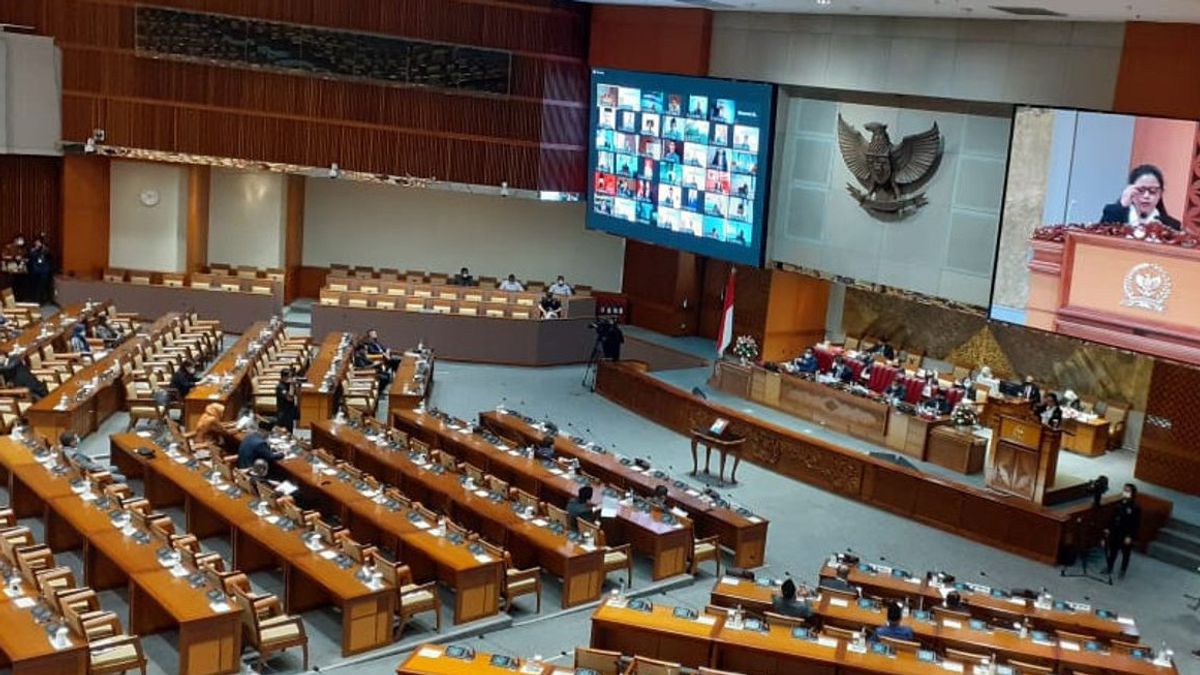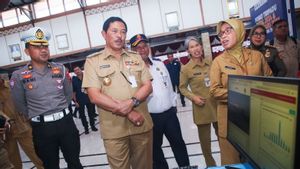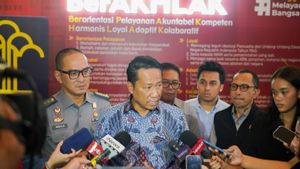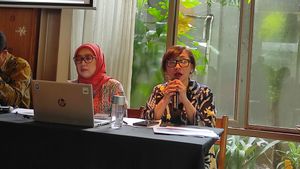JAKARTA - The Legislative Body (Baleg) of the DPR RI is again discussing and harmonizing the Draft Law on Family Resilience which is considered controversial.
During the meeting, Member of the DPR RI Baleg from the Gerindra faction, Sodik, who was one of the proposers for the Bill on Family Resilience promised to remove the controversial article that was deemed harmful.
"Let's read it carefully, we will review it again. I think we will all agree to delete those articles if they clearly threaten the unity of the Indonesian nation and for example too regulate privacy issues," said Sodik at the DPR RI Building, Thursday, November 12th.
Sodik admits that he also has concerns that the Family Resilience Bill will overstate matters of privacy in the household.
"To choose a candidate, for example, it is regulated, to function who takes care of the children, who works like that, and so on, I think we also have to worry," said Sodik.
In the meeting, a number of factions questioned the urgency of discussing the Family Resilience Bill, including Golkar, Gerindra, and NasDem.
Member of the DPR RI Baleg from the Golkar faction, Nurul Arifin, views the Family Resilience Bill has the potential to divide the nation rather than unifying the nation. This is because there are articles that interfere with family matters too much.
"In this Family Resilience Bill, we also become a nation that seems to be resilient. Like in Chapter 9 there is community participation. It's like how we take care of other people's households, even though a household has its own entity," said Nurul.
Article controversy
There are 146 articles in the Family Resilience Bill. Some of the articles are disputed. Among them, sexual deviations, the wife's obligation to take care of the household and sperm matters.
In the elucidation chapter of the Bill on Family Resilience, a number of articles discuss sexual deviance, which in the explanation are attached to Lesbian, Gay, Transgender and Bisexual (LGBT), such as Articles 86 and 87.
Article 86 states: "Families experiencing a family crisis due to sexual deviations are obliged to report their family members to the agency that deals with family resilience or a rehabilitation institution appointed by the government for treatment and / or treatment."
Meanwhile, article 87 reads: "Every adult who experiences sexual deviation is obliged to report himself to the body that handles family resilience or a rehabilitation institution to get treatment and / or treatment."
Then a public debate occurred in Article 25 paragraph (3) which states the obligations that must be performed by a wife, namely:
a. obliged to manage household affairs as well as possible;
b. keep the family together; and
c. treat husbands and children well, and fulfill the rights of husbands and children according to religious norms, social ethics, and provisions of laws and regulations.
In addition to regulating sexual deviance, the Family Resilience Bill also regulates what can and cannot be done regarding the sperm and ovum of the Indonesian people. At least, there are four articles in the bill that regulate this matter.
Article 26 paragraph (1) states that a married couple has the right to reproduce. Then in paragraph (2) it is regulated that reproduction can be carried out naturally and using intermediary technology.
"Every husband and wife who are legally bound by a marriage have the right to obtain offspring as referred to in paragraph (1) letter c can be carried out by natural means or assisted reproductive technology by using the fertilized sperm and ovum from the husband and wife concerned and implanted in the wife's womb. where does the ovum come from, "the bill states.
Then, Article 31 of the Bill prohibits the practice of buying and selling sperm or ovum for the purpose of obtaining offspring. Paragraph (2) also prohibits any person from persuading, facilitating, coercing, and / or threatening other people to trade sperm or ovum.
The Family Resilience Bill also prepares fine and criminal sanctions for violators of these two things. Article 139 states that a person who trades sperm or ovum is subject to a maximum imprisonment of five years and a maximum fine of Rp. 500 million.
Not only that, this bill also penalizes people who deliberately persuade, facilitate, coerce, and / or threaten other people to trade sperm or ova. This rule is contained in article 140.
"... shall be punished with a maximum imprisonment of 7 (seven) years and a maximum fine of Rp. 500,000,000.00 (five hundred million rupiah)," Article 140 states.
In this bill, there are also rules regarding surrogation of the uterus or surrogate mother. The rules related to surrogation are contained in Article 32 of the draft Family Resilience Bill. Meanwhile, the rules for criminal sanctions are contained in articles 141, 142 and 143.
Article 32 paragraph (1) reads, "Everyone is prohibited from carrying out surrogation to obtain offspring." Meanwhile, paragraph (2) reads, "Everyone is prohibited from persuading, facilitating, coercing, and / or threatening other people to carry out surrogation to obtain offspring."
Then, Article 141 reads, "Any person who deliberately performs surrogation for the purpose of obtaining offspring as referred to in Article 32 paragraph (1) shall be punished with imprisonment of up to 5 (five) years and / or a maximum fine of Rp. 500,000,000. 00 (five hundred million rupiah). "
Then, Article 142 reads, "Any person who deliberately induces, facilitates, forces, and / or threatens another person to volunteer to carry out a surrogation as referred to in Article 32 paragraph (2) in order to obtain offspring, shall be punished with imprisonment of 7 (years). years and a maximum fine of Rp. 500,000,000.00 (five hundred million rupiah). "
Furthermore, Article 143 paragraph (1) reads, "In the event that the criminal offense as referred to in Article 31 and Article 32 is committed by a corporation, in addition to imprisonment and fines against its management, the punishment that can be imposed on the corporation is in the form of a maximum fine of 5,000,000,000. 00 (five billion rupiah). "
Then, paragraph (2) reads, In addition to the fine as referred to in paragraph (1), the corporation may be subject to additional penalties in the form of: a. revocation of business license; and / or b. revocation of legal entity status.
The English, Chinese, Japanese, Arabic, and French versions are automatically generated by the AI. So there may still be inaccuracies in translating, please always see Indonesian as our main language. (system supported by DigitalSiber.id)













